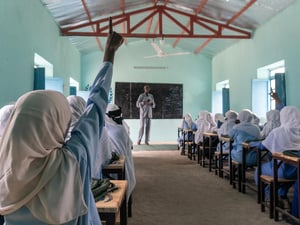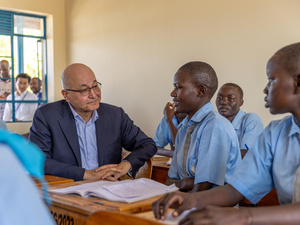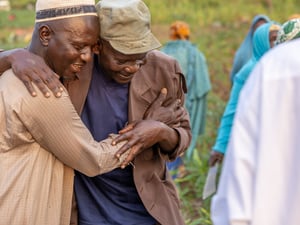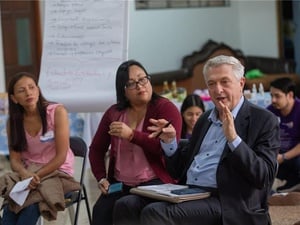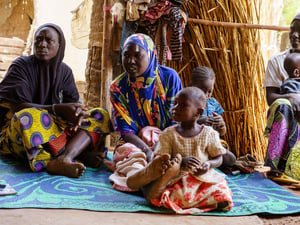Costa Rica’s solidarity with refugees threatened by major funding cuts, warns UNHCR
Costa Rica’s solidarity with refugees threatened by major funding cuts, warns UNHCR

UNHCR staff deliver aid items including mattresses and kitchen sets to the home of Victoria, a Nicaraguan asylum-seeker, in northern Costa Rica in 2021.
GENEVA – As humanitarian needs reach critical levels in Costa Rica, due to continuing displacement from Nicaragua, a 41 per cent funding cut is seriously impacting the ability of UNHCR, the UN Refugee Agency, to provide assistance to forcibly displaced people in the country.
The unrelenting political and social tensions in Nicaragua have forced people to cross the border, with thousands seeking safety in Costa Rica, which has upheld a strong asylum tradition, providing safety and dignity to those fleeing persecution.
As of March 2025, Costa Rica hosted more than 194,000 Nicaraguan asylum-seekers and 9,216 recognized Nicaraguan refugees – accounting for over half of all displaced Nicaraguans worldwide. Nicaraguan refugees and asylum-seekers now represent almost 4 per cent of Costa Rica’s population of 5.1 million and 83 per cent of all refugees and asylum-seekers in the country.
Over the past years, humanitarian aid – including crucial financial assistance that has supported integration – has enabled thousands of Nicaraguans in Costa Rica to access legal support, navigate asylum procedures, and pursue other legal pathways. It has also provided vital services such as child protection, mental health care, education, and job training and placement with a particular focus on women, children, and those living in high-risk or remote areas. In turn, Nicaraguans are making important contributions to the generous host communities that have welcomed them.
However, this lifeline is now in jeopardy. A sharp reduction in funding has already forced the suspension or drastic cuts of many essential services. As a result, critical support is no longer reaching those who need it most, particularly in remote communities, and the future of these life-changing programmes hangs in the balance.
From a regional perspective, Costa Rica has made a huge contribution to forced displacement with its continued commitment to providing refugees with opportunities to rebuild their lives in safety. The country reaffirmed its commitment through its leadership in the Global Compact on Refugees, the Comprehensive Regional Protection and Solutions Framework (MIRPS), and the Quito Process, working to provide lasting solutions for those who have found safety in its territory.
With support from UNHCR, the country has strengthened its asylum system and promoted inclusion. Even amid deep funding cuts, UNHCR remains committed to supporting Costa Rica’s efforts. However, without sufficient resources, the ability to help people stay, integrate and thrive is at serious risk.
The asylum system itself is under strain. With more than 222,000 asylum claims still pending – including from other nationalities – this bottleneck threatens the entire protection system. Additionally, UNHCR’s registration capacity in Costa Rica has decreased by 77 per cent, slowing down key processes such as the identification of vulnerable cases and referral to employment, health care and education, and other essential services
UNHCR has the expertise, networks and presence on the ground to continue assisting displaced people and saving lives. But we urgently need support. This is a moment for donors to show leadership.
Governments, private donors and individuals all have a role to play in ensuring that protection does not fail when and where it is needed most. UNHCR is appealing to the international community for increased support to maintain life-saving operations in Costa Rica. The organization needs $40.4 million to continue its critical work in the country this year.
For more information, please contact:
- In Geneva: William Spindler, [email protected], +41 79 549 5998
- In Panama: Analía Kim, [email protected], +507 6898 1846
- In Costa Rica: Carolina Fuentes, [email protected], +506 86237801

